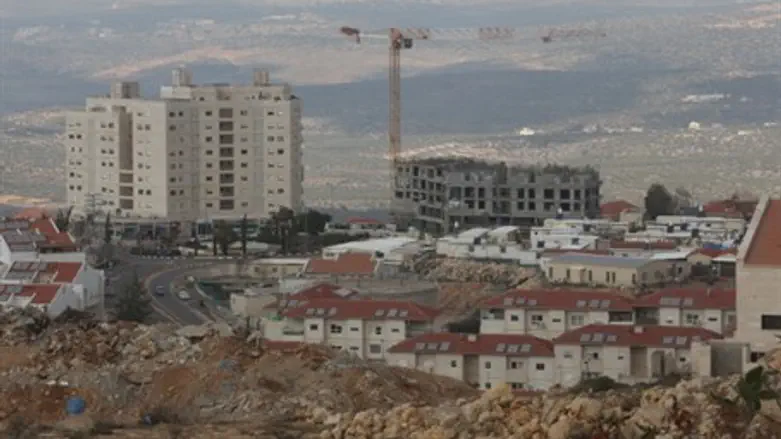
A study by the Regavim Research and Legal Advocacy Organization released at the Ariel University Conference Thursday shows that the High Court has a strong record in enforcing rules against illegal building in Judea and Samaria – by Jews.
But, the study reveals, for illegal building by Palestinian Authority Arabs, the court was much more willing to turn the other cheek.
The report, presented at a conference at the university Thursday, studied 54 cases of illegal building brought before the court between 2005 and 2013 – 29 filed by Arab and leftist groups such as Peace Now against construction in Judea and Samaria, and 25 filed by right-wing groups, such as Regavim, against illegal construction work in Arab villages in Area C.
According to the rules imposed by the IDF, any construction in Area C requires permission from the Civil Authority. In all of the cases, the plaintiffs maintained, no permits were issued.
Each case had reached the court after being adjudicated in lower courts and by the Civil Authority, which in some cases issued demolition or cease-and-desist orders to defendants. In each case, the defendants, through their attorneys, presented details reasoning as to why they felt the Civil Authority orders should not apply.
The parameters of the cases, then, were roughly similar, according to the report – but the results were certainly not.
By every measurement studied, the court favored the positions taken by the Arab and leftist parties to the cases – either when they were plaintiffs petitioning against construction in Jewish towns, or defendants seeking to allow continued construction in Arab villages that right-wing groups were seeking to halt.
It took, for example, 23 days for the court to respond to the petitions against Jewish construction, but 52 days to respond to petitions against illegal Arab building.
In 87% of the cases, the court issued an injunction against Jewish construction until the case could be heard; only 17% of illegal Arab building was temporarily halted by such injunctions.
It took 250 days on average for the “left-wing” cases to be heard, compared to 369 days for their right-wing compatriots' cases.
And, in 46% of “left-wing” cases, the court demanded that the state justify why it took the side of right-wing groups against construction; in the opposite cases, such justification was required in only 4% of the cases.
Yehuda Eliyahu, chairman of Regavim, which was a party to many of the “right-wing” petitions, said that “the statistics are very troubling. This kind of discrimination harms the reputation of the court among the public, and causes untold damage to the reputation of the High Court and to the rule of law."
"We call on Israel's elected officials to act quickly to ensure fair play in the court system, if only to restore the reputation of the courts, and the public's faith in them.”